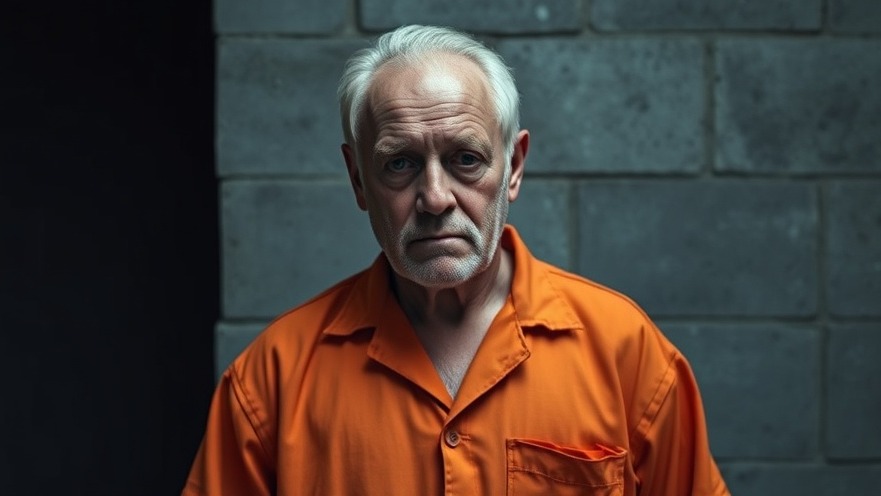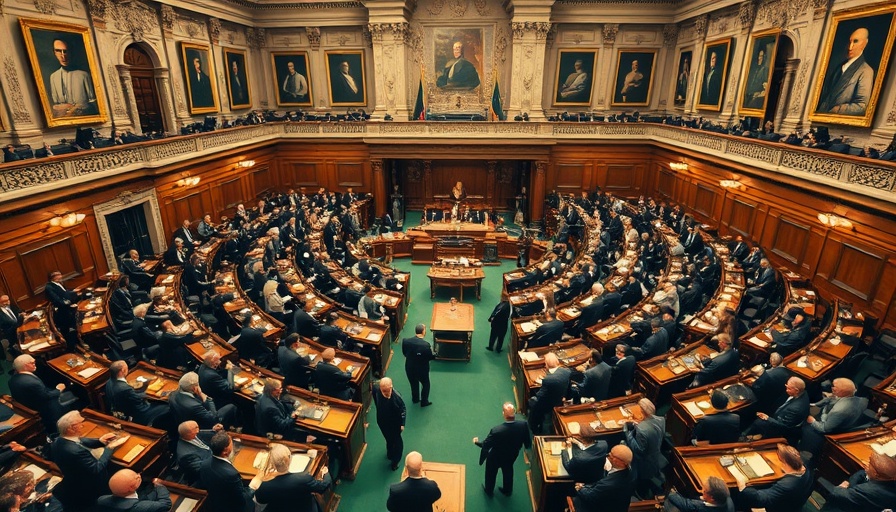
The Long Legacy of the Menendez Brothers’ Case
The case of Erik and Lyle Menendez, charged with murdering their wealthy parents in Beverly Hills in 1989, has captivated the public for decades. Their dramatic trial, which featured tales of abuse and dysfunction, not only transformed the courtroom proceedings but ignited a nationwide conversation about parental power and the dark side of wealth. The recently denied parole for Erik highlights the ongoing complexities of their case and raises questions about justice and redemption in the American legal system.
What Led to the Denial of Parole?
California's parole board decided against Erik Menendez's request for parole, citing that the circumstances surrounding the 1989 murders still warrant significant concern. The board highlighted his lack of insight into the impact of his past actions, a factor that continues to play a vital role in parole decisions. This decision comes in the wake of multiple requests for parole, reflecting a persistent debate about whether those who commit heinous acts can reform genuinely.
Echoes of Controversy in the Public Eye
The Menendez brothers' case serves as a focal point in discussions about how serious crimes are treated versus personal circumstances. Many advocates argue that the system overly punishes individuals without considering background factors, while others believe that no amount of past trauma can justify the brutal ending of lives. This duality makes the Menendez story relevant not just legally but morally, as audiences grapple with notions of guilt, responsibility, and the right to freedom after wrongs have been committed.
The Role of Media in Shaping Perception
The sensational media coverage surrounding the Menendez brothers has undoubtedly influenced public perception, with images of the trial embedding themselves in the cultural consciousness of the time. This coverage has been called both a hindrance and a help—drawing attention to important issues while also sensationalizing tragedy. As they attempt to secure parole, the brothers remain embroiled in the media spectacle, revealing how justice intertwines with narrative and public opinion.
Future Implications for the Legal System
As debates around the Menendez brothers continue to unfold, their case may herald new discussions about how justice is administered, especially in high-profile legal situations involving mental health and familial violence. Will Erik Menendez’s denial pave the way for more stringent measures in similar cases? Could it encourage a more systemic approach to rehabilitation and understanding of complex emotional backgrounds in criminal cases?
The Human Cost of Crime: Reflections on the Victims
While conversations often focus on the perpetrators, it is essential to remember the double tragedy of murder—the victims and their families. The Menendez parents lost their lives under horrific circumstances, and the ongoing repercussions rippled through the lives of their extended family and friends. As society discusses the possibility of parole, we must also reflect on the emotional fallout that lasts long after the trials are concluded.
Secure Justice or Repeat Offenders? Perspectives on Reform
This latest denial by the California parole board reinforces a critical discussion: how do we evaluate genuine reform in individuals like Erik Menendez? Can prisoners who committed egregious crimes be transformed into responsible citizens? The answers vary widely among experts and advocates, with some pushing for reform-based parole considerations while others advocate for higher thresholds due to the severity of offenses.
As the case persists in its legal and public discourse journey, it demonstrates the complexities of law, media, and moral judgment as intertwined elements of society's pursuit of justice.
 Add Element
Add Element  Add Row
Add Row 



Write A Comment